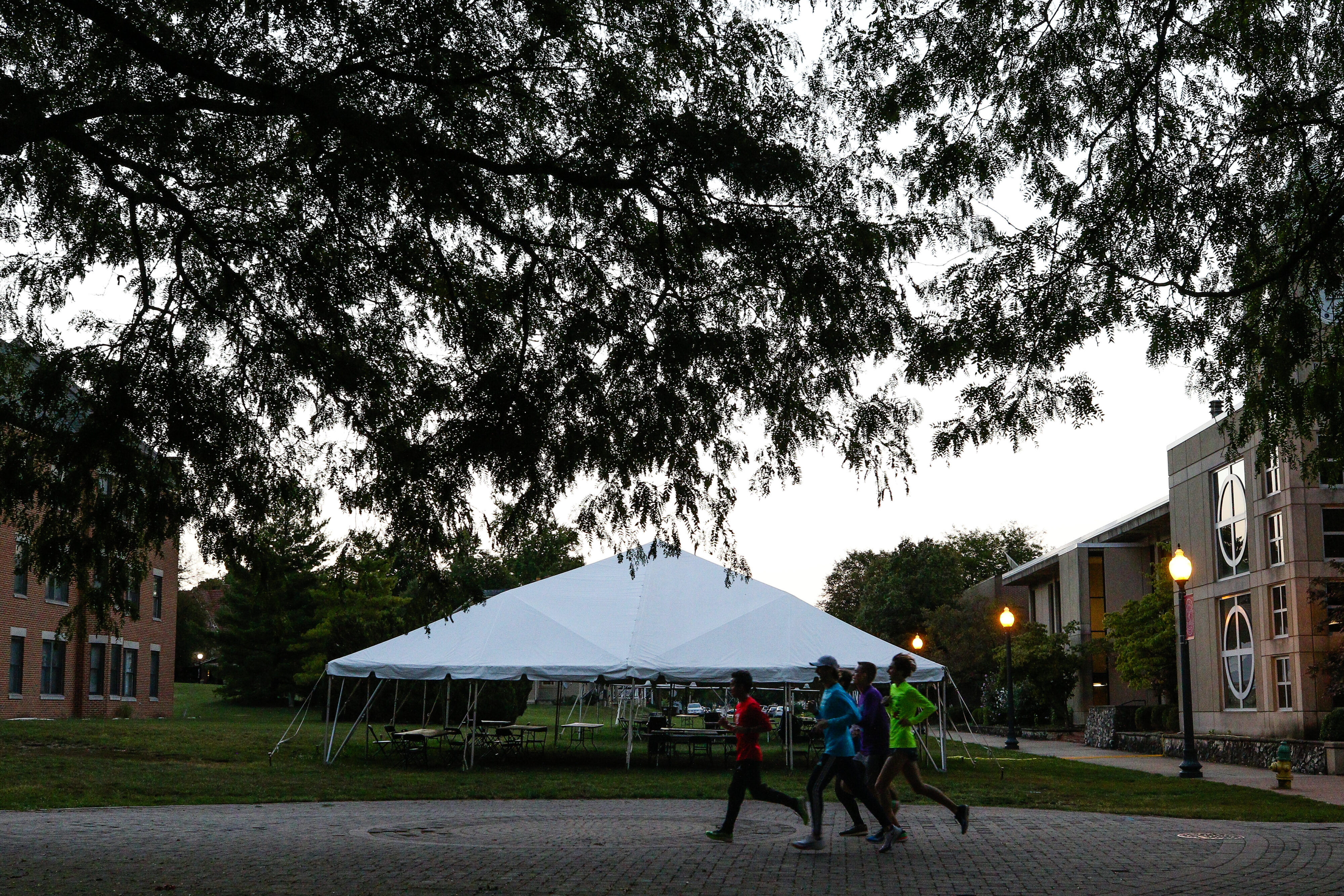At the peak of Wittenberg’s COVID-19 outbreak on Sept. 12, over 250 students or 15% of the student body were in quarantine or isolation. The Wittenberg Torch spoke with several students who spoke of limited communication from Wittenberg, academic struggles and students sneaking out of quarantine.
As Wittenberg’s COVID-19 outbreak worsened and reached a peak of 114 active cases on Sept. 14, Tiana Hughes (’23) was nearing her fourth day in isolation at Polis House after testing positive for COVID-19. Hughes, an English and psychology double major, shared that she had received limited information from Wittenberg regarding isolation restrictions.
“Wittenberg sent an email introducing us to Polis [House], after that we were on our own,” Hughes said. While Clark County Combined Health District (CCCHD) officially orders individuals to quarantine or isolate, Wittenberg’s COVID-19 Response Team provides students with information regarding academic and other support resources while in quarantine and isolation.
According to documents provided to The Wittenberg Torch by CCCHD, individuals in isolation are required to limit movement, monitor symptoms and remain isolated until ten days following the appearance of symptoms in addition to 24 hours without a fever. Individuals in quarantine are under the same criteria for a minimum of 14 days.
According to Jack Keri (’23), Wittenberg did not provide information on quarantine guidelines or meal ordering until a day after he was told to start quarantining by a contact tracer.
“There was no information that first day about what quarantine would look like, what I was supposed to do, or if I would even be contacted again,” Keri said.
“I don’t think [the restrictions] were enforced by [Wittenberg]” said a senior who requested anonymity due to fears about their personal safety. The senior had been quarantined twice in their campus residence after being tested for COVID-19.
The limited communication from Wittenberg and limited quarantine enforcement allowed for students to leave the confines of Polis House and roam campus in the evenings as confirmed by Hughes and other individuals who requested anonymity. Keri went as far as confirming that students were sneaking out of quarantine and visiting individuals infected with COVID-19.
“This is not the first time the [COVID-19] Response Team has been made aware of students violating the University’s established protocols for quarantine or isolation,” University spokesperson Karen Gerboth said in a statement to The Wittenberg Torch on Sept. 27, “Quarantine and isolation orders are public health orders enforceable under the law. As such, Wittenberg expects students and employees to abide by these public health orders.”
According to documents provided to The Wittenberg Torch by CCCHD, individuals ordered to quarantine are bound by section 3707.08 of the Ohio Revised Code which states that “No person isolated or quarantined by a board shall leave the premises to which [they] has been restricted without the written permission of such board until released from isolation or quarantine.” Additionally, documents from CCCHD state that violation of quarantine or isolation orders is a minor misdemeanor under section 3707.99 of the Ohio Revised Code which allows a fine up to $150. Additionally, Wittenberg University Athletics has reserved the right to apply athletic suspensions to student-athletes who repeatably violate Wittenberg’s COVID-19 guidelines.
“[The suspensions] could range anywhere from a week out of an athletic activity all the way up to a year, depending on the severity of your act,” said Associate Athletic Director for Athletic Compliance Bret Billhardt in a presentation to student athletes on Sept. 24.

For students who obeyed the order of quarantine or isolation, daily life is boring as senior Miles Caine explained. Caine tested positive for COVID-19 on Sept. 8 after being identified as a close contact on Sept. 4.
“I would wake up and get some food that I had already made that way I wasn’t spending time in common area, go back to my room, eat, read and do homework,” Caine said of his daily routine while in isolation. According to documents from CCCHD, isolated individuals are supposed to limit their time in public spaces.
Academics in quarantine also had a different effect on each student as Caine felt that his time in isolation had a large effect on his motivation for academic work.
“Personally, I dropped the ball on [homework] big time,” Caine said, “You don’t feel productive at all because you’re sitting in your room all the time.”
Hughes had a similar experience, for she said, “It was really hard to even think clearly and that was partly because of [COVID-19] and [partly] being in that one room all day.”
“It was draining and I forgot how much I miss campus and people,” Hughes said of the mental effects of quarantine, “We literally would just sit there and look out the window at night and hope somebody walked by to talk to us.”
Zeke Bennett (’23) had a difference academic experience while isolating off-campus.
“I’m so far ahead in classes right now. I have projects that are due in a few weeks that I have started if not completed.” Bennett said, “I’m just using this time to get ahead in class and it’s the best thing I can do right now.
As of Friday, Sept. 25, Wittenberg had ten active COVID-19 cases with one probable case. The University has a total of 178 positive cases or 11% of the student body having been infected. In a statement to students on Thursday, Sept. 24, all 178 cases had been traced back to student living and social environments.





